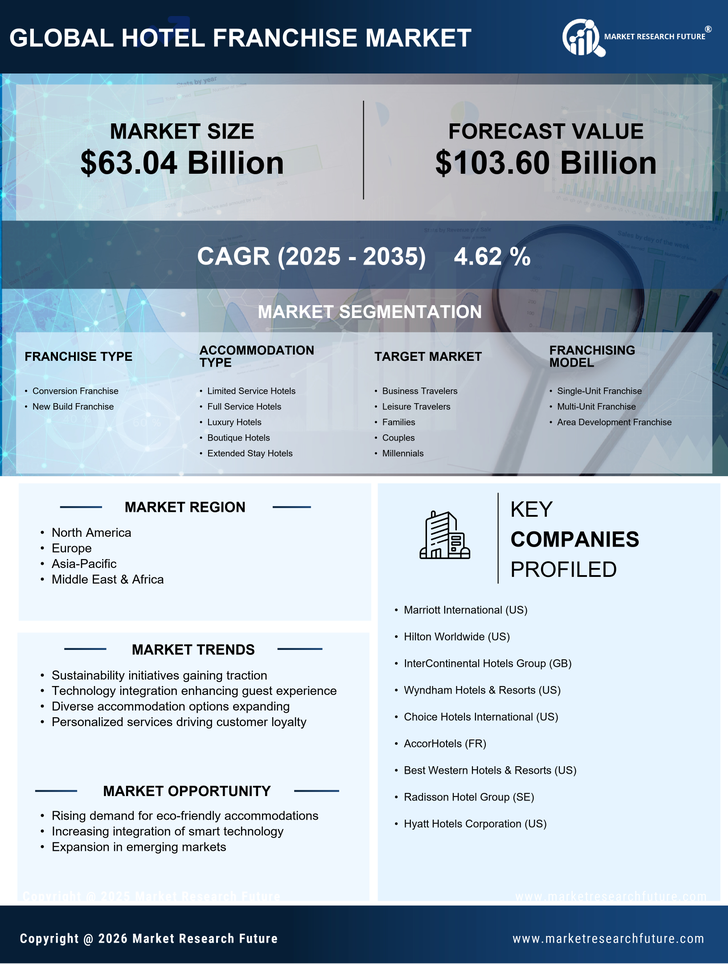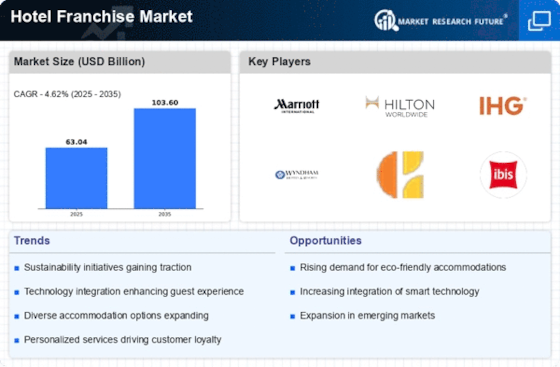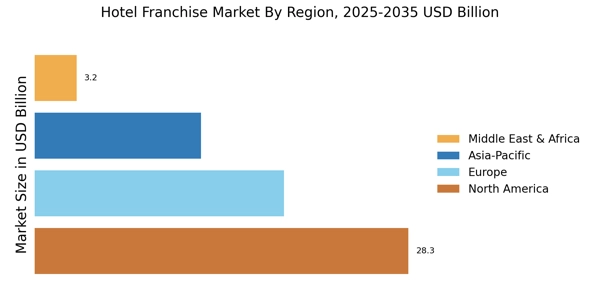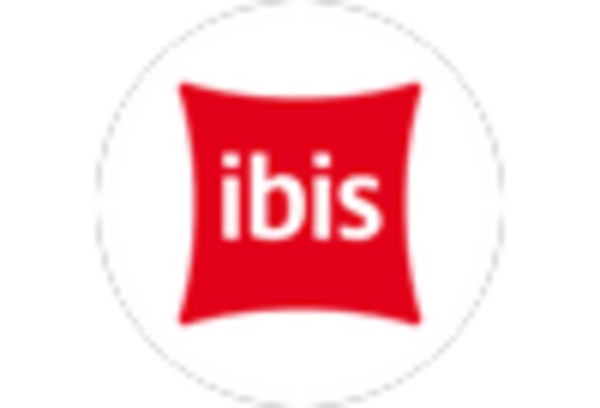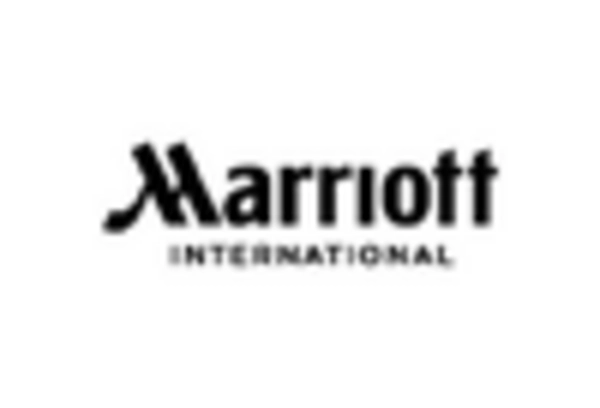Rising Travel Demand
The hotel franchise Market is currently experiencing a surge in travel demand, driven by increasing disposable incomes and a growing middle class. As more individuals seek leisure and business travel opportunities, hotel franchises are well-positioned to capitalize on this trend. According to recent data, the travel and tourism sector is projected to grow at a compound annual growth rate of approximately 5.5% over the next several years. This growth is likely to translate into higher occupancy rates and revenue for hotel franchises, as they expand their offerings to meet the diverse needs of travelers. Furthermore, the rise of online travel agencies and booking platforms has made it easier for consumers to access hotel franchise options, thereby enhancing visibility and market reach.
Sustainability Initiatives
The Hotel Franchise Market is increasingly adopting sustainability initiatives as a core component of their business strategies. With rising awareness of environmental issues, consumers are more inclined to choose accommodations that demonstrate a commitment to sustainability. Many hotel franchises are implementing eco-friendly practices, such as energy-efficient systems, waste reduction programs, and sustainable sourcing of materials. Recent studies indicate that hotels with strong sustainability credentials can achieve higher occupancy rates and customer loyalty. This trend suggests that hotel franchises that prioritize sustainability not only contribute positively to the environment but also enhance their market appeal, potentially leading to increased profitability in a competitive landscape.
Technological Advancements
The Hotel Franchise Market is significantly influenced by technological advancements that enhance operational efficiency and guest experience. Innovations such as mobile check-in, smart room technology, and data analytics are becoming standard in many hotel franchises. These technologies not only streamline operations but also provide valuable insights into customer preferences and behaviors. Recent data suggests that hotels implementing advanced technology solutions can see a revenue increase of up to 20%. As technology continues to evolve, hotel franchises that adopt these innovations are likely to gain a competitive edge, attracting tech-savvy travelers who prioritize convenience and personalization in their lodging experiences.
Focus on Health and Wellness
The Hotel Franchise Market is increasingly focusing on health and wellness, reflecting a broader societal trend towards healthier lifestyles. Many hotel franchises are incorporating wellness programs, fitness facilities, and healthy dining options to cater to the growing demand for health-conscious travel experiences. Recent surveys indicate that a significant percentage of travelers prioritize wellness amenities when selecting accommodations. This shift not only enhances guest satisfaction but also positions hotel franchises as leaders in the wellness tourism sector, which is projected to grow substantially in the coming years. By aligning their offerings with the health and wellness trend, hotel franchises can attract a niche market of health-oriented travelers.
Expansion of Franchise Models
The Hotel Franchise Market is witnessing a notable expansion of franchise models, which appears to be a strategic response to the evolving preferences of consumers. Franchising allows for rapid growth and brand recognition, enabling hotel chains to establish a presence in various regions with relatively lower capital investment. Recent statistics indicate that franchise hotels account for a significant portion of the overall hotel market, with estimates suggesting that they represent over 50% of total hotel rooms available. This trend is likely to continue as more entrepreneurs and investors recognize the potential profitability of entering the hotel franchise sector. Additionally, established brands are increasingly offering flexible franchise agreements, which may attract a wider range of potential franchisees.
